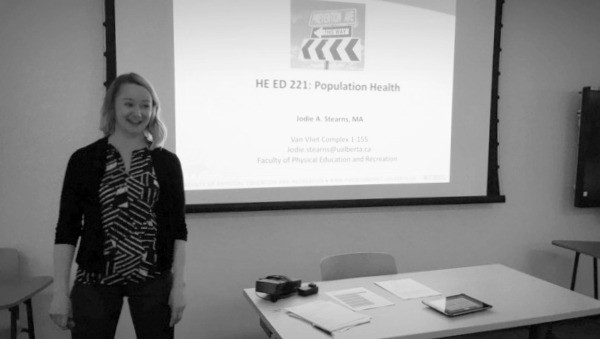 Image courtesy of Mimi Okabe
Image courtesy of Mimi Okabe
As an undergrad, some of the best courses that I remember taking were the ones that were taught by professors who seemed passionate and genuinely interested in the course content. They were professional, approachable, knowledgeable, and had a sense of humour. These are the professors whom, I think, all instructors should strive to emulate. At the opposite end of the spectrum, I can also recall some of the worst courses I took (although there were only a few) - these include the ones where the professor delegated information in a b-o-r-i-n-g and unexciting way. Yes, the ones who read content off their slides - ultimately, the classes that I skipped.
What are the telltale signs of a successful instructor?
Sure, you may be an expert in your field of research. You might in fact be a GREAT scholar, but knowledge-of-a-specific-subject-area alone will not prepare you to teach a class, EVER. The profiles of this year's recipients of the 3M Fellow are proof that successful instructors are those who are multi-dimensional. They are great scholars as well as great instructors.
Recently, I completed a six-week project-based program entitled, "Pedagogy and Curriculum Design," which is offered as part of the Graduate Learning & Teaching Program (GTLP) by the Faculty of Graduate Studies at the U of A. (The GTLP currently consists of 4 levels, and the course I took is the third one). This course, which is taught by Dr. Deanna Davis, taught me to build my competence in course design and assessment, but also taught me what it means to be an effective instructor (like the ones you remember from when you were a student).
In this course, I learned more than just the fundamentals of how to put together a syllabus (such as Bloom's taxonomy). From tips on managing difficult and/or stressful situations (such as handling last-minute extension requests); to tips on knowing how to express course expectations with transparency; to tips on identifying the pros and cons of assessment techniques and knowing which method works best for a given class size and course topic (ie. Formative/summative, norm referencing/criterion based) - each lesson encouraged me to critically reflect on the feasibility of my core principles of course design.
At the end of the six-week program, I applied the knowledge I gained by making formative changes to a syllabus that I will be using in an upcoming course on science fiction!
(A complete list of the topics covered in this course cannot be summed up here, so I encourage you to take the class!)
Through this professional development course, Deanna encouraged me to take on an influential role both in and outside the classroom, and most importantly, inspired me to care and critically think about what my students gain under my tutelage. In fact, I think, this course should be made mandatory to all graduate students (especially for those pursuing a path to professor-land) before they walk across the stage with a diploma in hand. As you prepare for battle in the fierce world of the job market, programs such as this one may, one day, be an invaluable asset.
One of the highlights of this course was the teaching-demo that everyone took part in during the last week of class. We were all required to do a 5-7 minute presentation based on a course of our own design. I personally enjoyed the wide range of teaching styles, topics and personalities that were showcased.
This year, Deanna implemented a People's Choice Award and we got to vote for the top 2 presentations (Congrats to Chris & Mary!).
To see photos and recent updates, from the course, visit the FGSR Facebook page!
In sum, this program provides graduate students with the fundamental tools and strategies needed for them to succeed as an instructor, while also offering transferable skills that you can market.
For those who forgot what it's like to be in the position of student again, taking this course might make you feel uncomfortable. But if self-reflexivity is as important to you, as it is for me, this course will remind you of "our own experience as timid readers and students before we became professionals" (Helen Vendler 28). I stumbled upon this quote in a professional development course while I was still a MA student and it has stuck with me ever since. It's now part of my own teaching philosophy and it serves as reminder that in the race to become better, smarter, more qualified, and more of this and that, it's important to remain humble at every stage of your teaching career and as an academic.
Where can you find more information regarding this program? On the FGSR Professional Development page.
Note: some of the links provided here are ones that Deanna has shared in her course.

Tsugumi (Mimi) Okabe - PhD Candidate, SSHRC Doctoral Fellow, Department of Comparative Literature, Faculty of Arts
Mimi is currently a PhD candidate at the University of Alberta undertaking her SSHRC funded research on Japanese detective manga in Comparative Literature. She has taught courses in World literature, Sherlock Holmes, and will be teaching Science Fiction in Summer 2017. For more info, please visit: mimiokabe.com